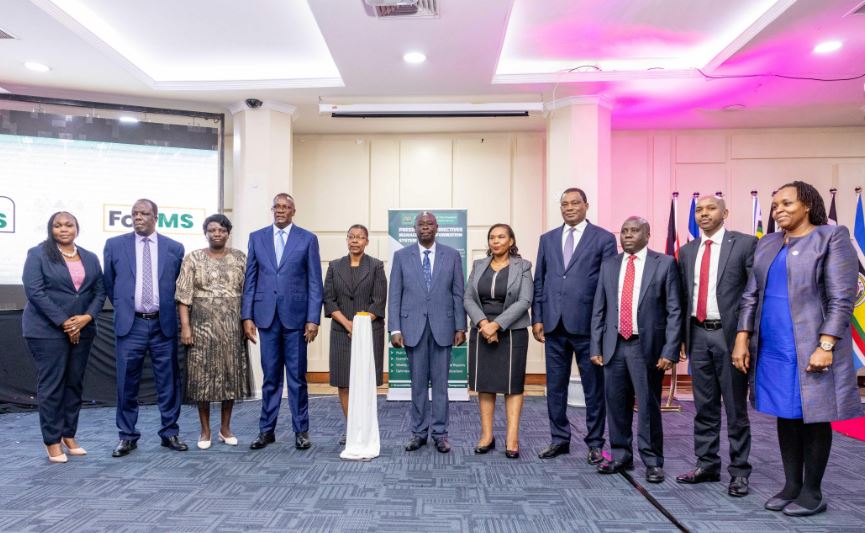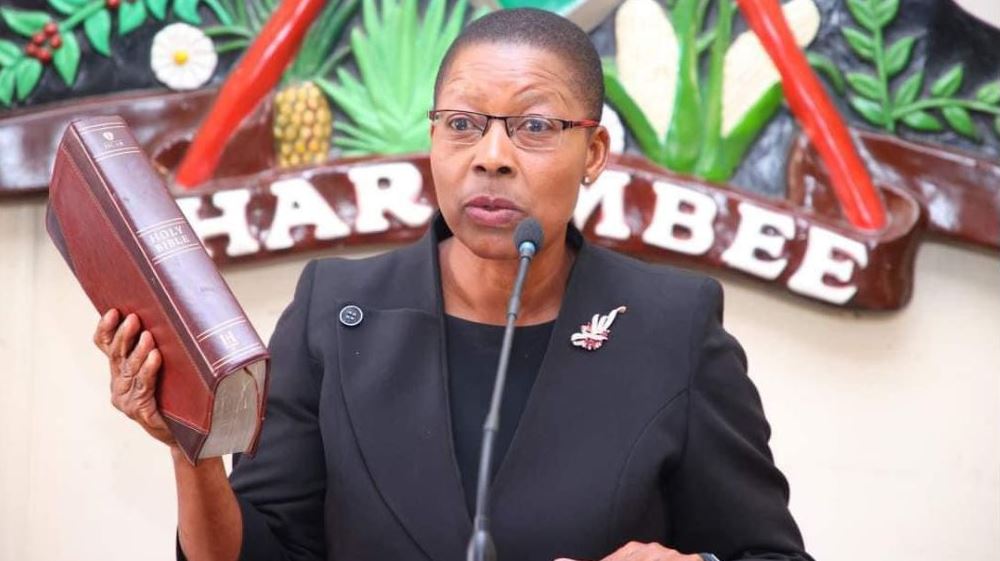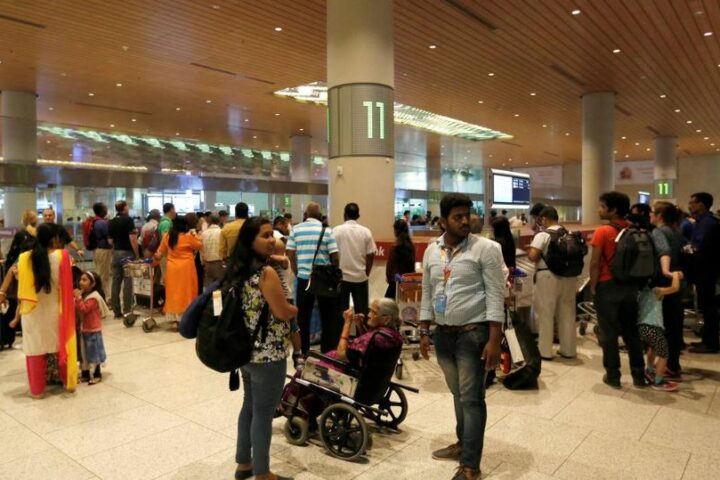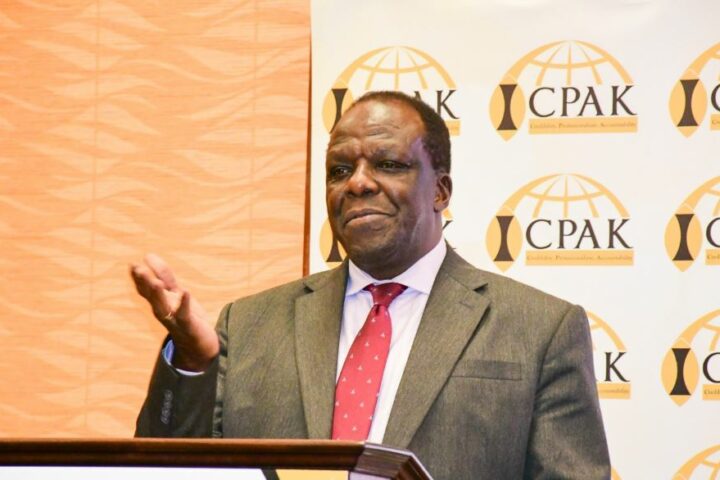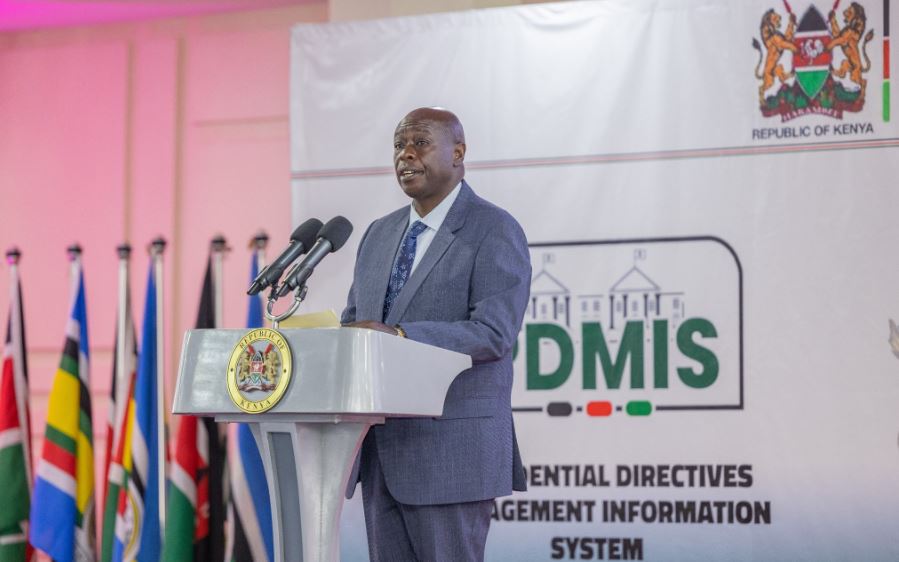 The government has officially unveiled a new system designed to track, manage, and control foreign travel by public officers, aiming to streamline the process and improve accountability.
The government has officially unveiled a new system designed to track, manage, and control foreign travel by public officers, aiming to streamline the process and improve accountability.
On Monday, September 2, 2024, Deputy President Rigathi Gachagua led the launch of the Foreign Travel Information Management System (FOTIMS) and the Presidential Directives Management Information System (PDMIS) at the Kenyatta International Convention Centre (KICC) in Nairobi. The launch marks a significant step towards enhancing transparency and efficiency in public service operations.
Deputy President Gachagua emphasized that FOTIMS would transform the process of obtaining clearance for foreign travel, eliminating ambiguities and ensuring the prudent use of public resources.
“FOTIMS improves the application, processing, and approval of foreign travel for public servants. Importantly, it ensures the prudent use of public resources and holds individuals accountable for their travel expenses,” Gachagua explained.
Gachagua also discussed how PDMIS will streamline the auditing of actions taken during the implementation of presidential directives.
“I am confident that by the end of the year, all the presidential directives so far issued will be audited, worked on and implemented to the satisfaction of the people of Kenya. All of us given the privilege to serve have a solemn duty to dignify his office by making sure the pronouncements he makes across the country are implemented without fail,” he said.
The Deputy President added that any challenges encountered during directive implementation would be promptly flagged and addressed by the system, ensuring quick communication of issues to the public.
Gachagua noted that Kenyans have recently demanded greater transparency in taxpayer spending. He emphasized that these new systems are timely and crucial for addressing this concern.
“This is a significant day for the public service. These systems will enhance our efficiency and ensure we work to the satisfaction of the Kenyan people,” Gachagua concluded.
Ruto’s Austerity Measures
These new systems align with the austerity measures introduced by President William Ruto, aimed at reducing costs associated with public servants’ foreign travel. Between 2022 and 2023, the government spent Ksh. 6 billion on foreign travel and Ksh. 12 billion on domestic trips.
In response to the need for cost reductions, Head of Public Service Felix Koskei issued directives to minimize unnecessary travel. Senior public officers must now seek authorization from the President through the public service before traveling. Koskei also mandated that a Cabinet Secretary and a Principal Secretary cannot be abroad simultaneously.
Delegation sizes for foreign trips have been limited to a maximum of four relevant officials, with personal assistants and security personnel barred from accompanying senior officials. Furthermore, foreign travel for Cabinet Secretaries, Principal Secretaries, chairpersons, and heads of state corporations is capped at 45 days per year, with trips limited to no more than 15 days per quarter.
The Ministry of Foreign Affairs will now advise the public service on the importance of proposed foreign trips. The government has also decided that international conferences will be attended virtually, with only benchmarking trips related to specific policy reforms nearing completion being permitted.
